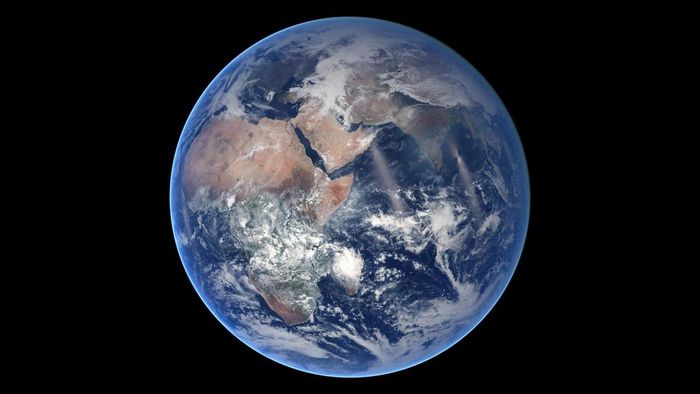How much does the Earth weigh?
Our planet contains everything from rocks to minerals and millions of species, covered in countless natural and man-made structures.
So how much does all of that weigh? Actually, there is no specific answer to this question. Just as humans weigh less on the Moon than on Earth, our planet has more than just one weight. The weight of the Earth depends on the gravitational force acting on it, that is, it can weigh trillions of kilograms or not weigh at all.

What scientists have spent centuries trying to determine, however, is the mass of the Earth. Mass is the ability to resist changes in velocity and direction of motion. According to NASA, the mass of the Earth is 5.9722×1024 kg. This number is equivalent to 13 million billion of Egypt's Khafre Pyramid, weighing about 4.8 billion kg. Earth's mass fluctuates slightly due to increases in cosmic dust and gases escaping our atmosphere, but these small changes will not affect Earth for billions of years.
Still, physicists around the world disagree on the decimal fraction, and coming up with a total number is no easy task. Because the Earth cannot be placed on a scale, scientists must measure its mass using other measurable objects.
The first component is Isaac Newton's law of universal gravitation, Stephan Schlamminger, a metrologist at the US National Institute of Standards and Technology, told Live Science. Everything that has mass has gravity, meaning that any two objects will always have some force between them.
Newton's law of universal gravitation is often stated that every particle attracts every other particle in the universe with a force proportional to the product of their masses and inversely proportional to the square of the distance between their centers. .
You should read it
- ★ What happens when you travel through the heart of the earth?
- ★ New discovery: Iron snow rains are happening inside the Earth's core
- ★ How long does it take you to reach the other half through the center of the Earth vertically?
- ★ How will a meteorite be found to crash into NASA Earth?
- ★ History of Earth formation and 25 milestones (Part I)